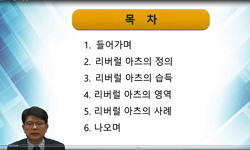The purpose of this study is to present a collaborative writing education method using digital technology in university liberal arts education. To this end, the necessity and theoretical background of collaborative writing education were examined. Nex...
http://chineseinput.net/에서 pinyin(병음)방식으로 중국어를 변환할 수 있습니다.
변환된 중국어를 복사하여 사용하시면 됩니다.
- 中文 을 입력하시려면 zhongwen을 입력하시고 space를누르시면됩니다.
- 北京 을 입력하시려면 beijing을 입력하시고 space를 누르시면 됩니다.

교양교육에서의 디지털 기술을 활용한 협력적 글쓰기 교육 방안 = Collaborative Writing Education Plan Using Digital Technology in Liberal Arts Education
한글로보기부가정보
다국어 초록 (Multilingual Abstract)
The purpose of this study is to present a collaborative writing education method using digital technology in university liberal arts education. To this end, the necessity and theoretical background of collaborative writing education were examined. Next, this study tried to present teaching and learning cases for collaborative writing and suggestions for collaborative writing education using digital technology.The experience of performing collaborative writing is useful for finding a better writing method while reflecting on one's writing process through the mutual collaboration process with the member. For this collaborative writing education, this study presented a class strategy for each step, divided into five stages: ‘selection of provisional topics and group organization’, ‘content composition for collaborative writing’, ‘interim inspection of group activities for reflection activities’, ‘drafting and feedback’, and ‘final drafting and evaluation’. In order to efficiently perform such collaborative writing, it is necessary to properly utilize digital collaboration tools in the group discussion process. In addition, it is important to compensate for individual contributions to collaboration in the collaborative writing process, and to provide appropriate feedback from the instructor. By properly utilizing these digital collaboration tools, educational measures that can increase the efficiency of collaborative writing should be continuously prepared.
국문 초록 (Abstract)
이 연구는 대학 교양교육에서의 디지털 기술을 활용한 협력적 글쓰기 교육 방안을 제시하는 것을 목적으로 한다. 이를 위해 먼저 협력적 글쓰기 교육의 필요성과 이론적 배경을 살펴보았다....
이 연구는 대학 교양교육에서의 디지털 기술을 활용한 협력적 글쓰기 교육 방안을 제시하는 것을 목적으로 한다. 이를 위해 먼저 협력적 글쓰기 교육의 필요성과 이론적 배경을 살펴보았다. 다음으로, 협력적 글쓰기를 위한 교수·학습 사례와 디지털 기술을 활용한 협력적 글쓰기 교육을 위한 제언을 제시하고자 했다. 협력적 글쓰기에 대한 수행 경험은 조원과의 상호 협력과정을 통해 자신의 글쓰기 과정을 성찰해 보면서, 보다 나은 글쓰기 방법을 찾는 데 유용하다. 이러한 협력적 글쓰기 교육을 위해 이 연구에서는 크게 ‘가주제 선정 및 조 편성’, ‘협력적 글쓰기를 위한 내용 구성’, ‘성찰 활동을 위한 조별 활동 중간 점검’, ‘초안 작성 및 피드백’, ‘최종본 작성 및 평가’라는 다섯 단계로 나눠, 각 단계별 교수·학습 전략을 제시해 보았다. 이러한 협력적 글쓰기의 효율적 수행을 위해서는 조별 협의 과정에서 디지털 협업 도구를 적절히 활용하는 것이 필요하다. 또한, 협력적 글쓰기 과정에서 협업을 위한 개인의 기여도를 보상해 주고, 교수자가 적절한 피드백을 제공해 주는 것이 중요하다. 이와 같은 디지털 협업 도구들을 적절히 활용함으로써, 협력적 글쓰기의 효율성을 높일 수 있는 교육 방안이 지속적으로 마련되어야 할 것이다.
참고문헌 (Reference)
1 진영복, "협력학습 수업 모형과 대학 글쓰기 교육" 시학과언어학회 (16) : 93-118, 2009
2 Levy, Pierre, "집단지성: 사이버 공간의 인류학을 위하여" 문학과지성사 2002
3 교육부, "보도자료: 우리나라 학생의 협력적 문제해결력은 최상위 수준: OECD, PISA 2015 협력적 문제해결력 평가 결과 발표"
4 이강주, "디지털전환 시대 미래 학교교육 시나리오 탐색" 교육연구원 37 (37): 1-25, 2021
5 배보은, "대학글쓰기 수업 방안 연구 - 과정 중심 글쓰기 협력학습을 바탕으로 -" 돈암어문학회 37 : 203-236, 2020
6 이효숙, "대학 교양 글쓰기 수업의 협동학습 실습 지도안 연구" 한국 리터러시 학회 10 (10): 427-462, 2019
7 정희모, "글쓰기 교육과 협력학습" 삼인 2006
8 김지선, "공유와 협업의 글쓰기 플랫폼, 위키" 한국학연구소 (60) : 371-419, 2021
9 Nystrand, M., "Where did composition studies come from?" 10 (10): 267-333, 1993
10 Bruffee, K. A., "Social Construction, Language, and the Authority of Knowledge: A Bibliographical Essay" 48 (48): 773-790, 1986
1 진영복, "협력학습 수업 모형과 대학 글쓰기 교육" 시학과언어학회 (16) : 93-118, 2009
2 Levy, Pierre, "집단지성: 사이버 공간의 인류학을 위하여" 문학과지성사 2002
3 교육부, "보도자료: 우리나라 학생의 협력적 문제해결력은 최상위 수준: OECD, PISA 2015 협력적 문제해결력 평가 결과 발표"
4 이강주, "디지털전환 시대 미래 학교교육 시나리오 탐색" 교육연구원 37 (37): 1-25, 2021
5 배보은, "대학글쓰기 수업 방안 연구 - 과정 중심 글쓰기 협력학습을 바탕으로 -" 돈암어문학회 37 : 203-236, 2020
6 이효숙, "대학 교양 글쓰기 수업의 협동학습 실습 지도안 연구" 한국 리터러시 학회 10 (10): 427-462, 2019
7 정희모, "글쓰기 교육과 협력학습" 삼인 2006
8 김지선, "공유와 협업의 글쓰기 플랫폼, 위키" 한국학연구소 (60) : 371-419, 2021
9 Nystrand, M., "Where did composition studies come from?" 10 (10): 267-333, 1993
10 Bruffee, K. A., "Social Construction, Language, and the Authority of Knowledge: A Bibliographical Essay" 48 (48): 773-790, 1986
11 Vygotsky, L. S., "Mind in society" Harvard University Press 1978
12 Prensky, M., "Digital Natives, Digital Immigrants" 9 (9): 1-6, 2001
13 Weschsler, D., "Concept of collective intelligence" 26 (26): 904-907, 1971
14 박휴용, "COVID-19로 촉발된 ‘비대면 교육’의 교육적 의미와 미래적 전망" 교육비평 (46) : 30-64, 2020
동일학술지(권/호) 다른 논문
-
사회적 공감 능력 신장을 위한 대학 교양 수업 사례와 효과 분석
- 동의대학교 디그니타스교양교육연구소
- 서영진
- 2021
- KCI등재후보
-
교양교육을 통한 한국 전통발효식품(장류)의 우수성에 대한 인식고취
- 동의대학교 디그니타스교양교육연구소
- 배명숙
- 2021
- KCI등재후보
-
COVID-19 상황에서 대학생이 인식하는 좋은 교양과목 특성 및 만족도 탐색
- 동의대학교 디그니타스교양교육연구소
- 노혜란
- 2021
- KCI등재후보
-
- 동의대학교 디그니타스교양교육연구소
- 박영민
- 2021
- KCI등재후보




 KCI
KCI







